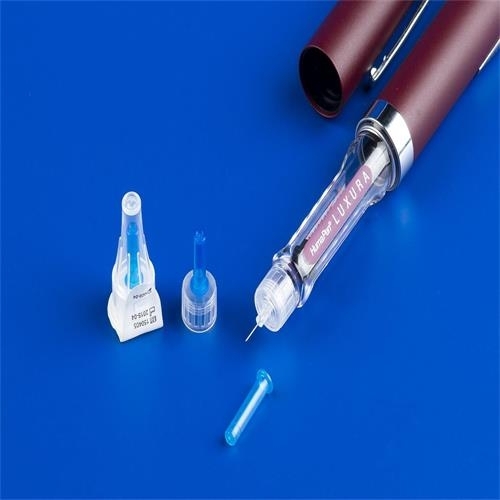Let’s talk insulin.
Mention the “I word” into a reduced carbohydrate dieter, or maybe a clean eater, and you can virtually obtain them turn white as the blood drains off their face in abject horror.
In their mind, insulin may be the big villain inside the nutrition world.
They refer to insulin as “the storage hormone” and believe anywhere of insulin in your body will immediately cause you to lay down new fat cells, put on pounds, and lose any amount of leanness and definition.
Fortunately, it’s not quite the situation.
The truth is, while simplifying things with regards to nutrition and training is often beneficial, it is a gross over-simplification with the role of insulin in the human body, and also the simple truth is entirely different.
Far from being the dietary devil, insulin is actually not be afraid of in any respect.
What Insulin Does
Describes of the insulin worrier’s claim (that insulin is really a storage hormone) holds true Body of insulin’s main roles is always to shuttle carbohydrate that you just eat across the body, and deposit it where it’s needed.
I am not saying that the carbs you consume become fat though.
You store glycogen (carbohydrate) in your liver, the muscles cells and your fat cells, and will also only get shoved into those pesky adipose sites (fat tissue) if the muscles and liver are full.
Additionally, unless you’re in a calorie surplus, you merely cannot store excess fat.
Consider it in this way –
Insulin is much like the staff in a warehouse.
Calories would be the boxes and crates.
You might fill that warehouse fit to burst with workers (insulin) however, if there are no boxes (calories) to stack, those shelves won’t get filled.
So if you’re burning 3,000 calories every day, and eating 2,500 calories (or perhaps 2,999) your system can’t store fat. No matter if those calories originate from carbs or sugar, you do not store them, as your body needs them for fuel.
Granted, this would not be the earth’s healthiest diet, speculate far as science can be involved, it comes to calories in versus calories out, NOT insulin.
It’s not only Carbs
People fret over carbs having the biggest influence on insulin levels, and exactly how carbohydrate (particularly of the simple/ high-sugar/ high-GI variety) spikes levels of insulin, but plenty of other foods raise insulin too.
Pure whey protein, for instance, is especially insulogenic, and may cause a spike, particularly if consumed post workout.

Dairy products too may relatively large effect due to natural sugars they contain, as well as fats can raise levels of insulin.
Additionally, the insulin effect is drastically lowered to eat a combined meal – i.e. one that contains carbs plus protein and/ or fat.
This slows the digestion as well as the absorption of the carbs, leading to an extremely lower insulin response. Add fibre in the mix too, and the raise in insulin is minimal, so even though we had arrived worried about it before, the perfect solution is is easy – eat balanced, nutrient-dense meals, and you also don’t need to worry.
Insulin Builds Muscle
Finding comfort the thought of insulin being a storage hormone, and also the notion it delivers “stuff” to cells:
Fancy going for a guess at what else it delivers, beside carbohydrate?
It delivers nutrients to your muscle tissues.
Therefore, should you be forever continuing to keep insulin levels low for concern with excess weight, it’s highly unlikely you’ll get buff optimally. It’s for this reason that I’d never put clients seeking to bulk up and make lean gains over a low-carb diet.
No Insulin Can certainly still Equal Fat cell function
Contrary to those low-carb diet practitioners yet again, you are able to store fat when levels of insulin are low.
Dietary fat when consumed in the caloric surplus is in fact changed into excess fat tissue far more readily than carbohydrates are, showing that after again, extra weight or weight loss depends upon calories in versus calories out, not levels of insulin.
Why low-Carb (and Low-Insulin) Diets “Work”
Many folk points for the scientific and anecdotal proof low-carb diets working as reasoning in order to keep insulin levels low.
I won’t argue – a low-carb diet, where insulin release is kept low are able to work, but this has very little regarding the hormone itself.
Whenever you cut carbs, you normally cut calories, putting you right into a deficit.
Additionally, the average joe will eat more protein and much more vegetables when going low-carb, so they really feel far fuller and eat less. Plus, protein and fibre both have a top thermic effect, meaning they really use-up more calories during the digestion process.
Important thing: Insulin – Not Bad In the end
You don’t need to worry about insulin in case you –
Train hard and regularly
Follow a balanced macronutrient split (i.e. ample protein and fat, and carbs to accommodate activity levels and preference.)
Are relatively lean.
Eat mostly nutrient-dense foods.
Have zero issues with diabetes.
You’ll probably still store fat with low levels of insulin, and you will get rid of fat and make muscle when insulin occurs.
Investigating insulin in isolation as either “good” or “bad” really is a prime illustration of missing the forest to the tress, so chill out, and let insulin do its thing as you focus on the real picture.
To get more information about Ozempic Cost please visit internet page: check here.
